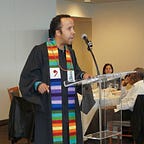What Is Childhood Trauma?
Childhood trauma can be any experience that harms a child’s physical, emotional, or psychological well-being. Childhood trauma can cause long-lasting and far-reaching damage, affecting people well into adulthood. Understanding its complexities is essential to provide appropriate support and intervention.
Key Takeaways
- Childhood trauma can have long-term effects on mental and physical health.
- Neglect is a form of childhood trauma that can have a significant impact on development.
- Adverse Childhood Experiences (ACEs) can contribute to trauma and should be addressed.
- Trauma-informed care is important for supporting children who have experienced trauma.
- Recognizing signs of childhood trauma and addressing it in schools can help prevent future trauma.
Defining Childhood Trauma: Understanding the Basics
Childhood trauma can be any event or series of events that overwhelms a child’s ability to cope and disrupt their sense of security. This can include physical, emotional, or sexual abuse, neglect, witnessing violence, or experiencing a natural disaster, among other things.
It’s important to note that everyone interprets trauma differently. So what may be…
